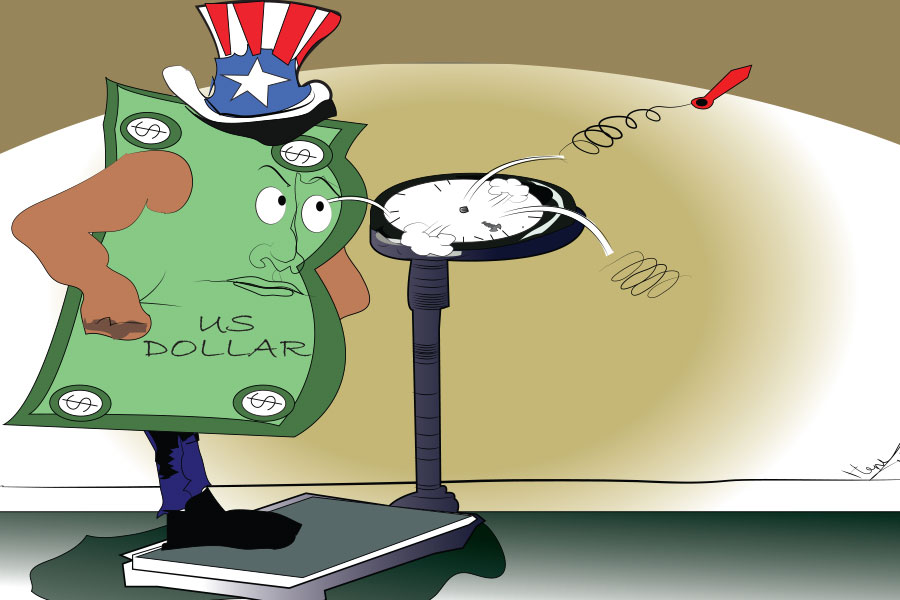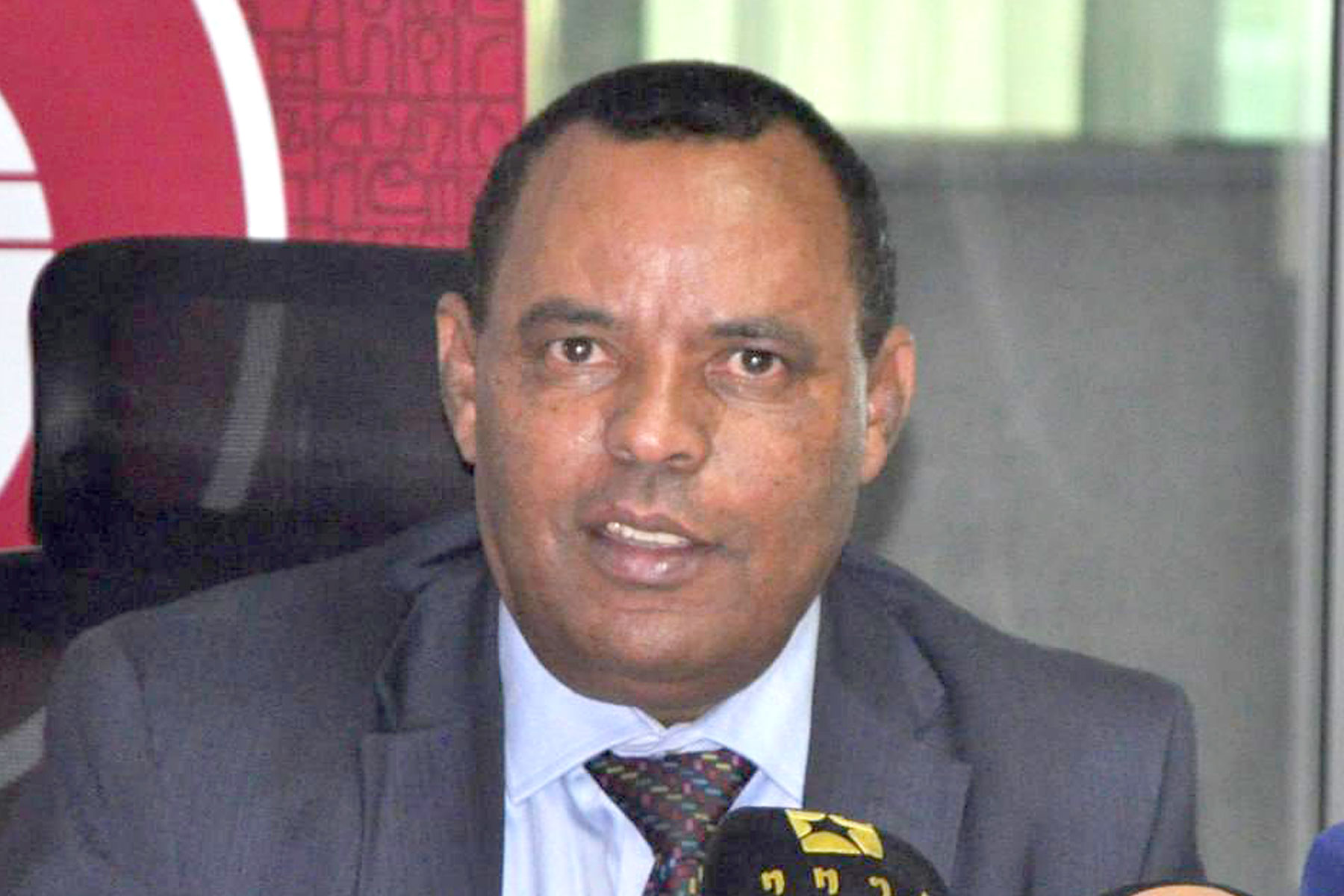
Sep 13 , 2025
By Eden Sahle
Nostalgia can weigh like an anchor, chaining new beginnings to old regrets. Vision, not resolution, offers a sturdier compass, pointing us toward possibility instead of guilt.
Every Meskerem, as the Ethiopian New Year arrives, the script seems eerily familiar. We rewind the reel of the past twelve months, tot up the wins and losses, and circle the blunders with the red ink of self-reproach. Reflection parades as maturity, the "right" way to welcome the turning of the calendar.
But what if that ritual is less wisdom than trap? What if clinging to the rearview mirror is what keeps us idling when the road is open ahead? The promise of the New Year, after all, is not nostalgia. It is the fierce act of looking forward.
We talk about the New Year as a reset button. Yet most of us don’t press it. We linger in the wreckage of the old one, replaying failures on loop or polishing up yesterday’s glories, as though either has the power to propel us. Maybe the better question is not "How did I do last year?" but "Who will I become this year?" That small pivot from hindsight to foresight can change not only how we mark the New Year but how we live inside it.
There is a myth baked into our rituals: if we examine the past with enough intensity, the future will fall in line. Reflection has value, yes, but it is not the master key we pretend it to be. We are unreliable archivists of our own lives. We exaggerate, minimize, distort. The failures swell to dominate the memory while the small victories shrink into footnotes.
Think of New Year’s Eve. How many sit in silence, chewing on guilt over what never materialized, who slipped away, or where they fell short? Reflection turns easily into rumination, and rumination is quicksand. It immobilizes at the very moment we should be moving forward. A future-driven New Year doesn’t erase the past; it simply refuses to haul it along as dead weight. The guiding question becomes not "What happened to me?” but "What will I do next?"
Of course, optimism has its skeptics. Every Meskerem, cynics roll their eyes at the resolutions and hopeful talk, dismissing it all as self-deception destined to collapse by Pagumen. But hope is not weakness; it is fuel. Hope is the stubborn recognition that the story is not finished. It does not pretend obstacles vanish; it provides stamina to face them.
Psychologists have a phrase for this: agency thinking, the belief that our actions can bend the arc of the future. Without it, nothing begins. Redefining the New Year as an act of hope transforms it from a sentimental tradition into a disciplined vision. A better year is not stumbled into by accident. It is built with intention.
Anticipation may be the sharpest tool at our disposal. The brain fires more powerfully in response to expectation than to memory. Anticipation ignites motivation systems. It gets us moving. So rather than rummaging through the ashes of the year gone, imagine the sparks of the year ahead. Picture yourself healthier, braver, freer. The more vividly we anticipate, the more our choices arrange themselves in service of that image. Reflection tells us what was. Anticipation pulls us toward what can be.
And let’s admit it: the calendar itself has no magic. Meskerem 1st is not imbued with secret energy. Change does not require fireworks. The power of New Year is symbolic. It is the meaning we assign it, a ritual that tells us the page has turned. And if the date is symbolic, then we are free to decide what it symbolizes. Why not declare Meskerem 1st the Day of Vision? Not a closing of books but the start of fresh chapters.
The trouble with most approaches to the New Year is the brittle resolution. Resolutions are fragile contracts. Break one and the whole enterprise collapses. Vision, on the other hand, is sturdier. It is not about restriction; it is about direction. Vision shapes choices naturally, quietly, and it does not fracture under pressure.
To make the New Year a forward-facing enterprise, we need sharper questions. Not "What did I fail at last year?" but "What challenge am I ready to take on this year? What courage will I need in the months ahead? What kind of person am I becoming?" Questions like these open doors; they do not chain us to regret. Curiosity should replace punishment. Curiosity turns us into explorers. Guilt cements us in prison.
Sometimes the most radical act on New Year’s Day is forgetting. Not every failure deserves a sequel. Not every regret needs a rerun. Growth often demands selective amnesia, the willingness to drop yesterday’s baggage and run lighter into tomorrow. Forgiveness is another form of forgetting, and the clean slate of a new calendar may be the perfect moment to grant it to ourselves.
This is not just a personal shift. Imagine if whole communities approached Meskerem not as a scorecard of the past but as a blueprint for the future. Too often, conversations on New Year’s Day are heavy with retrospection, tallying what was done or left undone. What if instead they were bold sketches of tomorrow? Families drafting dreams together, workplaces daring new ambitions, neighbourhoods carrying a contagious forward-focus.
At its core, this is about our relationship with time. If New Year remains nothing but a rear view mirror, we risk becoming prisoners of hindsight. But if we recast it as a wide window to the horizon, we learn to live with eyes ahead. Time does not pause for our reflection; it propels us relentlessly forward. The future is coming whether or not we welcome it. Better to stand ready than to stumble under yesterday’s weight.
On New Year’s morning, the toast is often: "Here’s to a year better than the last." But even that phrase ties the future by the ankle to the past. What if instead we said, "Here’s to the year we are about to create?" That shift in language transforms us from spectators of time to authors of it.
Reflection feels safe. It is familiar territory. But the future, unpredictable, unwritten, thrilling, is the terrain that matters. The New Year does not demand that we remember. It demands that we imagine. And imagination is where every true step forward begins. So this year, resist the gravity of the past. Step beyond its orbit. Fix your eyes on the horizon. Life is not waiting behind you. It is waiting ahead.
PUBLISHED ON
Sep 13,2025 [ VOL
26 , NO
1324]

Fortune News | Oct 19,2019

Viewpoints | Jan 04,2020

Fortune News | Jan 29,2022

Editorial | Feb 16,2019

In-Picture | Aug 04,2024

Fortune News | Feb 01,2020

Radar | Oct 07,2023

Fortune News | Apr 30,2022

Viewpoints | Dec 02,2023

News Analysis | Apr 13,2024

Photo Gallery | 179025 Views | May 06,2019

Photo Gallery | 169221 Views | Apr 26,2019

Photo Gallery | 160098 Views | Oct 06,2021

My Opinion | 137138 Views | Aug 14,2021
Commentaries | Oct 25,2025

Dec 22 , 2024 . By TIZITA SHEWAFERAW
Charged with transforming colossal state-owned enterprises into modern and competitiv...

Aug 18 , 2024 . By AKSAH ITALO
Although predictable Yonas Zerihun's job in the ride-hailing service is not immune to...

Jul 28 , 2024 . By TIZITA SHEWAFERAW
Unhabitual, perhaps too many, Samuel Gebreyohannes, 38, used to occasionally enjoy a couple of beers at breakfast. However, he recently swit...

Jul 13 , 2024 . By AKSAH ITALO
Investors who rely on tractors, trucks, and field vehicles for commuting, transporting commodities, and f...

Oct 25 , 2025
The regulatory machinery is on overdrive. In only two years, no fewer than 35 new pro...

Oct 18 , 2025
The political establishment, notably the ruling party and its top brass, has become p...

Oct 11 , 2025
Ladislas Farago, a roving Associated Press (AP) correspondent, arrived in Ethiopia in...

Oct 4 , 2025
Eyob Tekalegn (PhD) had been in the Governor's chair for only weeks when, on Septembe...

Oct 25 , 2025 . By YITBAREK GETACHEW
Officials of the Addis Abeba's Education Bureau have embarked on an ambitious experim...

Oct 26 , 2025 . By YITBAREK GETACHEW
The federal government is making a landmark shift in its investment incentive regime...

Oct 29 , 2025 . By NAHOM AYELE
The National Bank of Ethiopia (NBE) is preparing to issue a directive that will funda...

Oct 26 , 2025 . By SURAFEL MULUGETA
A community of booksellers shadowing the Ethiopian National Theatre has been jolted b...